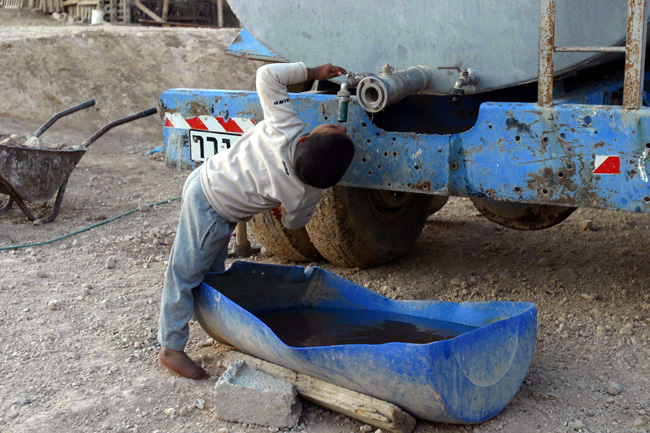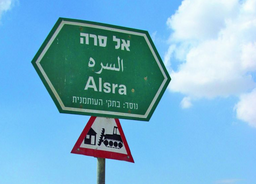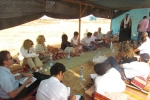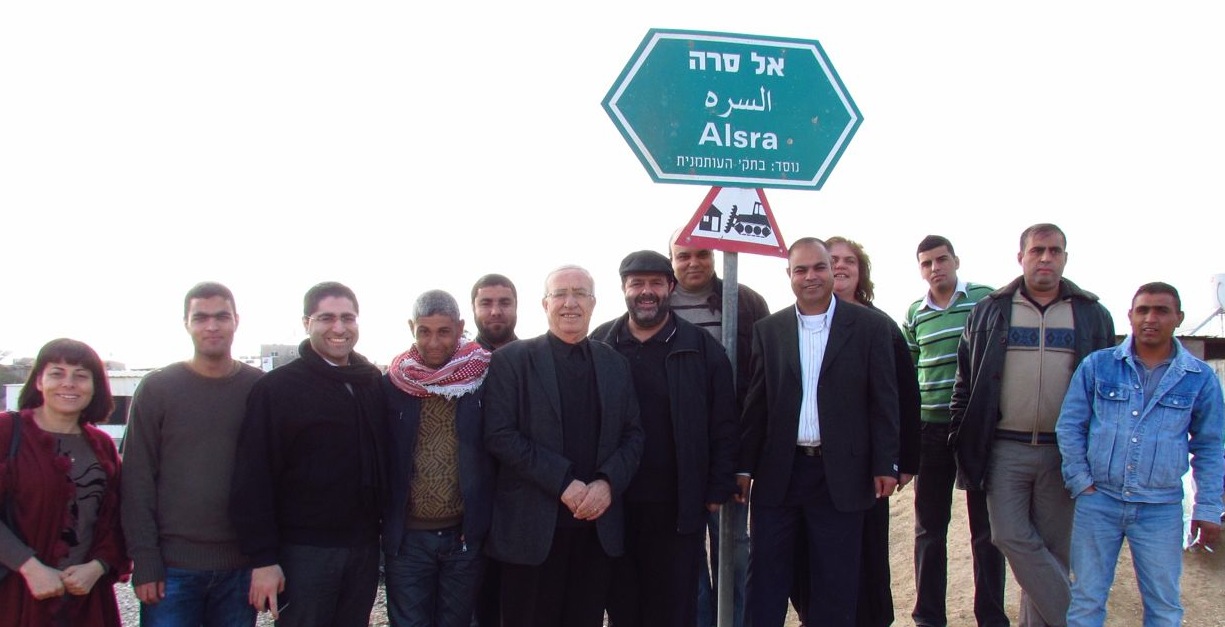Water in the Naqab (Negev): Source of Life, Tool of Expulsion

Within the past year, the Israeli government has begun tightening its grip on the water supply for the unrecognized Arab Bedouin villages in the Naqab (Negev) desert. Authorities have begun using water as a weapon against the unrecognized villages, placing obstacles in the way of villagers trying to access water to drink, clean, and maintain a few acres of crops. Water is crucial to the Arab Bedouin in the Naqab not only for drinking, but also for farming. Farming, raising livestock and crops is the main, and in many cases the only, source of livelihood for residents of the unrecognized villages.
The stubborn refusal to connect the Arab Bedouin, who are citizens of Israel, to water networks and a recent 67% increase in water prices are not coincidental; the water authorities are making these changes in order to help the state to implement the Prawer Plan, which will force tens of thousands of Bedouin from their homes and demolish their villages. The supply of water, the most crucial infrastructure in the Naqab, is being used as a tool to enforce the state’s plan to displace and dispossess the Arab Bedouin from their ancestral land.
No clean, safe drinking water
Unlike neighboring Jewish towns and farms, the Arab Bedouin in the unrecognized villages must fill water tanks and drive them to their homes, exponentially multiplying the cost and creating unsanitary water conditions. Civil society organizations have struggled to find a better solution for years. Some villages are now lucky enough to have connections to nearby Israeli Water Authority (Mekorot) pipelines via rickety plastic pipes, built and paid for by the villagers themselves. The plastic tubing, which the villagers lay on the surface of the ground so that it is exposed to sun all day, leads to significant water degradation.
Arab-Bedouin forced to build, maintain their own water systems
According to a water map released by Mekorot in 2007, there are around 265 water outlets for household water near the unrecognized villages in the Naqab. These outlets also serve some neighborhoods of villages within the jurisdiction of the Abu Basma Regional Council, which were recognized during the past decade. Our field research showed that these outlets are located 1-1.5km from homes, and serve an average of 15-50 homes each. Each outlet serves between 170-600 people, who receive water via pipes or trucking. In addition, because farming is main source of livelihood in these villages, the water must also be used for hundreds or thousands of heads of livestock and acres of agricultural land.
The villagers themselves, including those from the Abu Basma villages, build, maintain, and replace the water pipes themselves. The State Comptroller, in Report 004/2011 released on 20 December 2011, suggested that various ministries cooperate to ensure that the villages receive a better and safer source of water; however, the recommendation has been disregarded.
Water prices for Arab-Bedouin increase by 67%
In January 2012, three months after the Prawer Committee released its draft report, the Water Authority released its new price list. The residents of the unrecognized villages were shocked to see that their water costs had risen 67%, from 6.2NIS/cubic meter to 10.5NIS. There are now 13 different categories for water pricing, including prices for agriculture, livestock, industrial production, hospitals, and home construction.
One of the categories is for the “individual user”, who obtains water directly from Mekorot rather than through a local authority or water company. Arab-Bedouin use 80% of the “individual user” outlets in the Naqab. Since hundreds of people use each outlet, the residents of the unrecognized villages constitute 99% of “individual users”. The 67% price hike occurred only within this category, and is intended to force the villages’ inhabitants from their homes.
Residents of unrecognized villages now pay more for water than anyone else
Since the price increase, the residents of the unrecognized villages now pay more for water than anyone else in the country. Moreover, the prices set for all other residents include payment for all the services needed to deliver the water to their homes, including the prices for infrastructure, maintenance, and water removal/sewage. The residents of the unrecognized villages receive none of these services despite paying more for their water.
Furthermore, unlike other farmers, the residents of unrecognized villages do not receive a special price reduction for water intended for agricultural use. Instead, they pay the drinking water price of 10.5NIS/cubic meter, while farmers on neighboring Jewish settlements pay just 2.1NIS for agricultural water. This price makes rearing livestock and watering crops nearly impossible, cutting the Arab Bedouin off from their main source of livelihood.
Water as a tool to force the people of the unrecognized villages out
The government is using a range of discriminatory policies to compel the people of the unrecognized Bedouin villages in the Naqab to abandon their land, including by violating their fundamental human right to water. Since the price hike, some are even unable to pay the cost of the water they need for basic household needs. In addition, their water supply is unreliable and regularly cut off. Those who complain to the Water Authority are told, “The water in the seven recognized villages is cheaper, so move there.” Thus the state has turned water, one of the basic necessities of life, into a weapon with which to drive the Arab Bedouin in the unrecognized villages off their land.
Read Press Release from 25/2/2013, "Supreme Court Refuses Water to Unrecognized Arab Bedouin Village Umm el-Hieran"
















